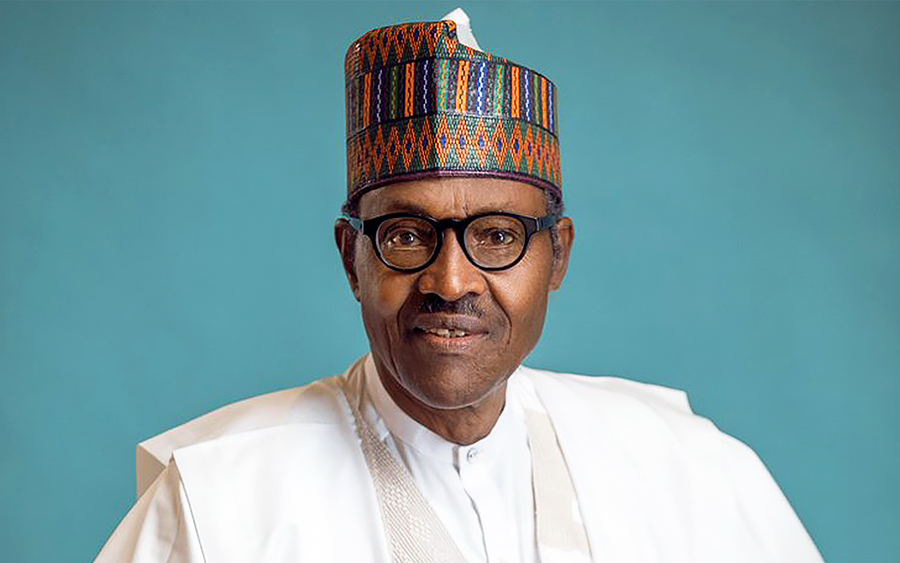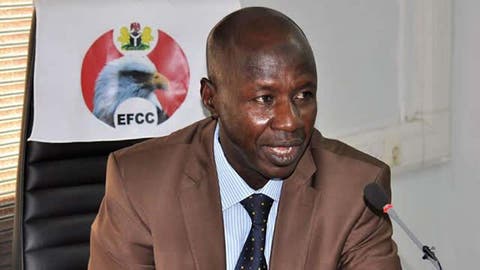Why Buhari should not impose leaders on NASS
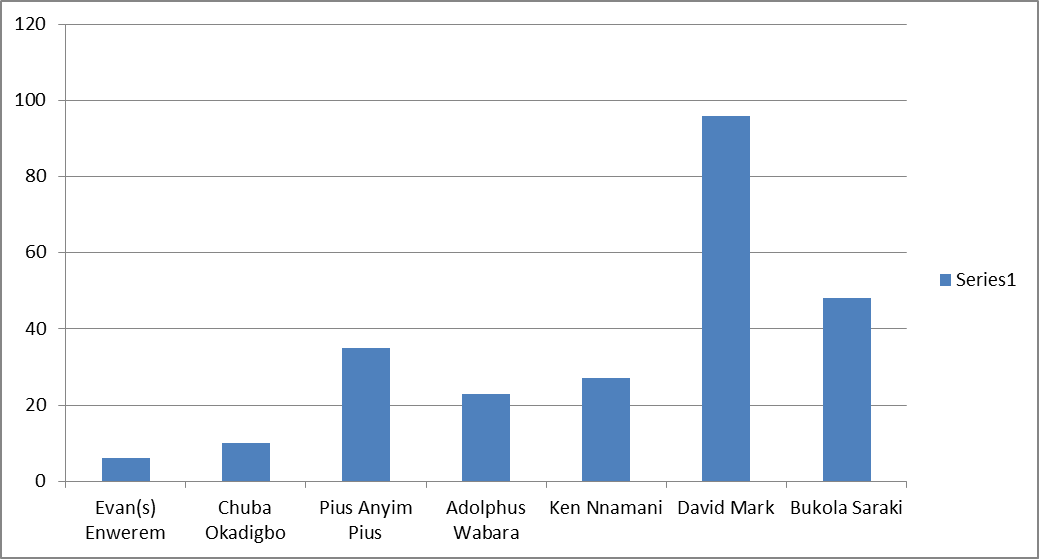
Each Assembly, from 1999 to 2019, presents a lesson why imposition of leaders on National Assembly always boomerangs
In the morning of power struggle for the leadership of the National Assembly, Nigerians heard the loud voices of some elected members of the National Assembly, saying the third arm of government, the Legislature, was waiting on re-elected President Muhammadu Buhari to dictate who should occupy leadership positions in the two Chambers. Such thinking, sounding ordinarily altruistic, may be self-serving and another approach to the power struggle in the National Assembly, as elements who surrender their independence to the Executive may be considered to be “loyal.” That is, loyal to certain individuals in the party or the presidency, not necessarily being loyal to their calling and those who elected them into the exalted seats as lawmakers. Such calls negate the fundamental principles of the doctrine of separation of power.
Secondly, lawmakers who are surrendering this privilege to Buhari tend to have a very short memory. As at last week, several elected senators, like Ali Ndume, Danjuma Goje, Adamu Ibrahim, Lawan Adamu, and Orji Uzor Kalu, have indicated interest in the position of Senate Presidency. Evidence abounds of the fact that since 1999, that it the First Assembly to the Eight Assembly that will end in June 2019, the leaderships of the National Assembly appointed by The Presidency have been short-lived, as they are caught in the labyrinth that those who serve two masters find themselves.
The critical idea of separation of powers, propounded by French political writer Baron de Montesquieu in his The Spirit of Laws in 1748 was based on the argument that “If the executive and the legislature are the same persons, there must be a danger of the legislature enacting oppressive laws which the executive will administer to attain its own ends”. The idea of separation of power implies that the Legislature is independent of the Executive, so lawmakers should not have judicial powers; neither should the executive have legislative powers; nor the judiciary have executive powers. Though practically, there is usually an overlap of these functions, it will be a breach of this doctrine for the executive to determine the leadership of the legislature, as those so elected would pander to the whims and caprices of the executive or party elements who granted them the ‘favour’ to be elected as principal officers of the House of Representatives and the Senate.
7 Lessons from 1999 to 2019
Former President Olusegun Obasanjo, in 1999, took it upon himself to determine who would become the Senate President when he chose Evan(s) Enwerem, a former governor of the old Imo State, over and above erudite Chuba Okadigbo, the Oyi of Oyi. Enwerem’s determination to please Obasanjo to the detriment of the interests of his constituency rendered him very unpopular among the senators. In order to hang him, a funny but technical issue regarding the spelling of his first name ‘Evan(s)’ took the centre stage. Compounded by an old criminal case exhumed from the archives, Enwerem’s fate was sealed, as the lawmakers quickly impeached him, six months into his tenure, and elected their preferred Chuba Okadigbo in his place.
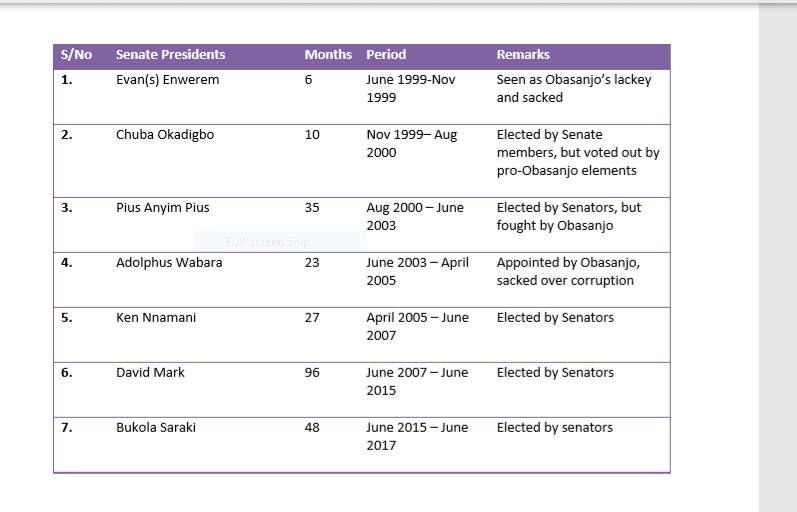
Table showing the number of months each senate president survived on the chair
Feeling bruised and determined to have his way, elements loyal to Obasanjo brought down the Oyi from his exalted throne. He sat there for only 10 months, from November 1999 to August 2000. But Obasanjo’s pound of flesh was not quite sweet in his mouth as Pius Anyim Pius, elected by the senators from among their ranks, became a difficult bone to break and swallow. It was a chaotic era for Anyim as he was perceived as an opposition element by the PDP government, but with the support of other senators, Anyim survived the tough storm and sat on the hot seat for 35 months. However, he paid a heavy price – he did not return to the Red Chamber after the 2003 elections.
During Obasanjo’s second tenure, he attempted to re-enact what he did unsuccessfully during his first tenure, as he supervised the election of Adolphus Wabara as Senate President. Actually, after the bitter lessons with Anyim, the PDP carefully chose its members who would make it to the National Assembly. Those who may not be loyal were edged out of the race. Senator Wabara’s tenure was shaken by corruption allegations. As a president who claimed to fight against corruption, Obasanjo did not waste time to support his sack in April 2005, about 23 months into a journey that should have last for 48 months. At this point, the senators elected independent-minded Ken Nnamani as Senate President. Firm but easy-going, Senator Nnamani enjoyed the popular support of senators across political divide and savoured the 27 months left by Wabara. But he did not leave without an indelible mark in the political history of Nigeria – he supervised the slaughter of the Third Term beast which threatened to destroy the country’s nascent democracy.
 As a testament to the need for independence of the Senate, Senator David Mark’s era was very successful. From the table and bar chart, he enjoyed 96 months on uninterrupted leadership of the Senate. Those imposed on the Upper Chamber by Obasanjo did not occupy the seats for too long. Evans Enwerem spent only six months while Adolphus Wabara spent only 23 months. Elected by members in June 2007 without interference from the late President Umar Musa Yar’adua, the Senate, under David Mark, had a seamless working relationship with the Executive, as there was no rancour between the two arms of government. The opposition parties in the Upper Chamber also worked harmoniously with the Executive, as if there was no opposition in government. After the first four years (2007 – 2011), Senator David Mark was re-elected as Senate President in 2011, under President Goodluck Jonathan. Again, Senator Mark enjoyed the cooperation of other members of the Upper Chamber, and of course, a cordial relationship with The Presidency, such that the chaotic relationship between Obasanjo and those elected as Senate President under Obasanjo did not spring up.
As a testament to the need for independence of the Senate, Senator David Mark’s era was very successful. From the table and bar chart, he enjoyed 96 months on uninterrupted leadership of the Senate. Those imposed on the Upper Chamber by Obasanjo did not occupy the seats for too long. Evans Enwerem spent only six months while Adolphus Wabara spent only 23 months. Elected by members in June 2007 without interference from the late President Umar Musa Yar’adua, the Senate, under David Mark, had a seamless working relationship with the Executive, as there was no rancour between the two arms of government. The opposition parties in the Upper Chamber also worked harmoniously with the Executive, as if there was no opposition in government. After the first four years (2007 – 2011), Senator David Mark was re-elected as Senate President in 2011, under President Goodluck Jonathan. Again, Senator Mark enjoyed the cooperation of other members of the Upper Chamber, and of course, a cordial relationship with The Presidency, such that the chaotic relationship between Obasanjo and those elected as Senate President under Obasanjo did not spring up.
With the victory of the All Progressives Congress (APC) at the polls in 2015, President Muhammadu Buhari declared that he would not interfere in the election of the principal officers of the National Assembly. That noble position seemed half-hearted as the party behaved otherwise. This led to self-help and the controversial emergence of Senator Bukola Saraki as Senate President. Though he survived every attempt to remove him, Senator Saraki’s tenure was too chaotic. Nevertheless it was a demonstration of the Senate’s rejection of an attempt to impose upon them their principal officers.
Just as it was in the Senate, so it was in the House of Representatives. All the Speakers of the House of Representatives imposed by Obasanjo were quickly sacked. For instance, Salisu Buhari, an Obasanjo lackey, was sacked as a result of certificate scandal. Also Patricia Etteh, another Speaker imposed by Obasanjo for the Yar’adua government did not survive the revolt by lawmakers who accused her of corruption. However, the Speakers elected by members of the House, among them Ghali Na’Abba, Bello Masari, Dimeji Bankole, and Aminu Tambuwal, enjoyed the popular support of the lawmakers and they worked harmoniously with the Executive. In 2015, the House, like the Senate, rejected an attempt by APC to impose principal officers on them. They elected Yakubu Dogara as Speaker. Though the House was more stable than the Senate, the APC leadership instigated oppositions against Speaker Dogara, and that led to a lot of bad blood in the polity.
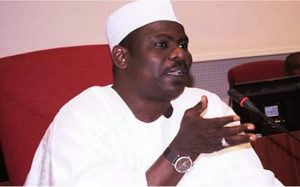
Senator Ali Ndume, one of those angling to Senate President in the 9th Assembly
It is important for the APC and The Presidency to take interest in how the National Assembly would elect the principal officers into the two chambers of the legislature. The lawmakers should be given the free hand to choose from among their ranks who their leaders should be. Any attempt by President Buhari, Adams Oshiomohle or other party chieftains to handpick the Senate President, Speaker of the House of Representatives and other leaders in the Legislature would lead to crisis. The ruling party could quickly declare how the positions have been zones, but give a free hand to the elected legislators to choose their leadership. Even if the lawmakers, at the beginning, acquiesce to the pleasure of the party and presidency, they could revolt against such leaders if the Legislature is seen to be too pliable to the Executive. The encounters between the Executive and Legislature during the tenures of the past eight National Assembly leaderships are a veritable lesson for the current government. Neither Buhari nor Oshiomohle, neither Tinubu nor the shadowy cabal, should attempt to do the impossible by hand-picking the leaders of the National Assembly.

